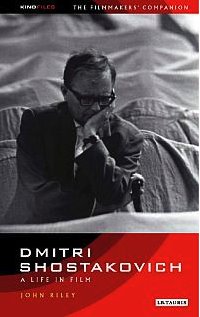
A very quick post after an absence in Russia - of which more in due course - pointing to the Moscow Film Festival. Though it's international, obviously here I'm looking mostly at the Russian/Soviet stuff. There are a couple of potentially interesting strands.
The opening film is Pavel Lungin's The Tsar (Царь) starring, as Metropolitan Philip, Oleg Yankovsky, who died about a month ago.
Last year's Socialist avant-gardism continues with part 2, including a couple of things I'll be sad to miss, notably Kozintsev's quite rare wartime propaganda shorts. Medvedkin's Miracle Woman (Чудесница, 1936) I remember as a typically enjoyable bit of knockabout. Sadly the MIFF blurbs generally give little in
 dication of what is avant-garde about the films but I'd be interested to see an early foray into that territory by Ivan Pyriev, director of the notorious Cossacks of the Kuban (1949), a musical comedy that celebrated the way that Soviet farmers regularly exceeded their wheat quotas,
dication of what is avant-garde about the films but I'd be interested to see an early foray into that territory by Ivan Pyriev, director of the notorious Cossacks of the Kuban (1949), a musical comedy that celebrated the way that Soviet farmers regularly exceeded their wheat quotas, or Sergei Yutkevich who, after his early wildness, interleaved most workaday productions with under-the-radar criticisms. They've chosen his last film, Lenin in Paris (Ленин в Париже, 1981), which, from the still seems a bit more promising though the published script that I have gives no indications of it being anything other than you would expect.
or Sergei Yutkevich who, after his early wildness, interleaved most workaday productions with under-the-radar criticisms. They've chosen his last film, Lenin in Paris (Ленин в Париже, 1981), which, from the still seems a bit more promising though the published script that I have gives no indications of it being anything other than you would expect.Last year there was a rather odd collection of films marking the centenary of the first film showing in Russia (Stenka Razin an obvious choice but, for all its popularity, Vainshtok's 1938 Treasure Island?!) This year three films mark the seventieth anniversary of the start of the war - interesting that they take it as 1939, rather then 1941, when the USSR was invaded. Given how massive a subject it is for Soviet cinema it would have been a good opportunity to do an archival retrospective (there was something similar in Berlin a few years ago) but they chose a very partial view with three contemporary looks back.
The Georgian strand reminds us just how strong that country's cinema is. There's a neat circularity in From The Vow to Repentance - the first, directed by Mikhail Chiaureli, is an early highpoint in Soviet cinema's hagiography of
 Stalin, while Abuladze's Repentance (1984) shatteringly dismantles the myth. Sadly, The Vow is the earliest film being shown, so we don't get to see any Georgian silents (the country was a late starter but strong).
Stalin, while Abuladze's Repentance (1984) shatteringly dismantles the myth. Sadly, The Vow is the earliest film being shown, so we don't get to see any Georgian silents (the country was a late starter but strong). The Chiaurelis (Mikhail, wife Veriko Andzhaparidze and daughter Sofiko) were important in cinema in the Causasus, but even more so were the Shengelayas. Nikoloz (1903-43) was a pioneer (Elisso, 1928 is extraordinarily beautiful), and his two sons Eldar (b.1933) and Georgi (b.1937) respectively directed the hilarious comedy Blue Mountains, or an Unbelievable Story (1983) and the blissful portrait of the naive painter Pirosmani (1969). When
 Sofiko C and Georgi S married, the two dynasties were linked and had a massive impact on Soviet cinema, with a welter of relations, including their director-son, another Nikoloz. Andzhaparidze was also aunt to Georgi Daneliya, linking to another whole strand. I tried working out a family tree but ran out of paper. Apart from returning to the Stalin myth, Repentance neatly brings things full circle as Andzhaparidze (whose family, despite the Chiaureli connection, were not immune from the Terror) appears in it. In fact, it's a bit of a family affair as various clan members were involved.
Sofiko C and Georgi S married, the two dynasties were linked and had a massive impact on Soviet cinema, with a welter of relations, including their director-son, another Nikoloz. Andzhaparidze was also aunt to Georgi Daneliya, linking to another whole strand. I tried working out a family tree but ran out of paper. Apart from returning to the Stalin myth, Repentance neatly brings things full circle as Andzhaparidze (whose family, despite the Chiaureli connection, were not immune from the Terror) appears in it. In fact, it's a bit of a family affair as various clan members were involved.Elsewhere, there's documentary about Prokofiev (which I'll be reviewing at greater length later in the year) as well as tributes to Pavel Lungin, Armenian documentarian Harutyun Khachatryan, some of Karen Shakhnazarov's favourite films (good to see Some Like it Hot in there) and a massive animation programme
Beyond Russia and the former USSR, as Britain finally gets the release of Wajda's Katyn Moscow is showing his new film Sweet Rush (Tatarak), dedicated to the cinematographer Edward Kłosiński and narrated in parts by his widow Krystyna Janda.
Finally, it's worth noting that the Skolimowski tribute includes both Le Départ and Deep End. Skolimowski's first western film has been available on DVD in the past (though he thinks another, more widely available one may be in the offing) but hopefully this is a sign that Deep End's long unavailability in some infuriating rights nightmare has been resolved.
